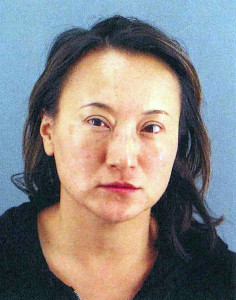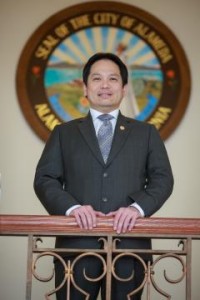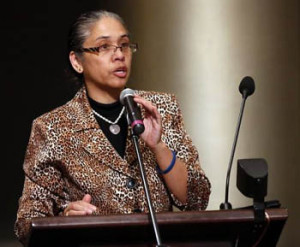 I am a liberal, of the bleeding heart variety. I think if you’ve committed a crime – a real one, with an actual victim – and you’ve done your time, the slate should be wiped clean. You should be able to vote, take the Bar, get a job. But I also think that if you want to regain the public trust, you need to take responsibility for your actions. If you don’t, then you have no business running for public office.
I am a liberal, of the bleeding heart variety. I think if you’ve committed a crime – a real one, with an actual victim – and you’ve done your time, the slate should be wiped clean. You should be able to vote, take the Bar, get a job. But I also think that if you want to regain the public trust, you need to take responsibility for your actions. If you don’t, then you have no business running for public office.
Take disgraced Assemblywoman and State Senate candidate Mary Hayashi. During her last term in the Assembly, Hayashi went to Neiman Marcus carrying an empty NM shopping bag and proceeded to fill it with expensive clothing, she then walked out of the store without paying for the items. Store employees were on the lookout for her, as she was suspected of having done the same thing a week before. While Hayashi plead guilty (or no contest, which has the same effect), she never took responsibility for her actions. Instead, she made excuse for her behavior (“I was distracted“, “I had a brain tumor“) and even now, won’t admit to what she did.

Mary Hayashi – mugshot
I would have been totally prepared to sympathize with Mary Hayashi if had she admitted she had a shoplifting problem. Shoplifting is often the result of a psychological disorder and can become one of the hardest addictions to kick. It’s a common affliction, however. About 9% of Americans shoplift, and the vast majority of them don’t do it for gain. Before getting into politics, Mary Hayashi was a tireless advocate for mental health and, in the Assembly, made it her priority to “break the culture of silence” about these issues. Yet, when she had the opportunity to speak out about her own struggles and thus help others, she instead retreated into lying. That’s disappointing, but it also shows that she is not at a place where she can take responsibility for her actions and be truthful and therefore, she is not trustworthy. The public saw through her when she ran for County Supervisor in 2012, and will see through her again as she runs for State Senate.
Alameda Council member Stewart Chen seems to suffer from the same affliction: an unwillingness to own up to his crimes and learn from his mistakes. Back in the early 1990’s, Chen was caught in a massive auto insurance fraud scheme. An Asian gang was staging fake car accidents between insured individuals, the fake accident victims would go see Chen, a chiropractor, who would make false claims about their injuries so the individuals could file fraudulent claims with the insurance company and himself file for treatment the fake victims didn’t need or get. In all, the gang seems to have stolen about $1M from the insurance companies.

Alameda City Council member Stewart Chen
These fake accident victims told the grand jury that they would go to Chen’s office, sign in and then leave without receiving treatment. Other times, their signatures were faked. One victim received some treatment, but for pain unrelated to the stage accident.
Chen plead guilty to two misdemeanors, paid a large fine, completed probation, and in due time his record was expunged. He thought nobody would ever find out about his crime and kept it quiet.
Earlier this week, when Chen’s criminal background came to light, he had two choices. He could have admitted what he did, show remorse and speak about the lesson he learned. I would have been sympathetic. Chen, like me, grew up in a corrupt society under a brutal dictatorship. Ethical and moral lines are often blurred in those environments. Of course, Chen was 30 years old and had lived in America for over a decade when he was indicted, but sometimes it takes something dramatic to make you realize your own moral flaws.
Unfortunately, it would seem that being convicted of fraud did not have that effect on Chen. Instead of showing remorse for his actions, Chen hast taken Hayashi’s approach and claims he wasn’t really guilty. “The fact is that I unknowingly treated patients who were part of an auto insurance fraud scheme run by a local attorney. I had no idea what they were doing and was not part of their scheme. I assumed the patients were legitimately injured.” Which, of course, does not address the fact that he falsified medical records and charged for treatment he did not provide. Like with Hayashi, you have to wonder if he actually thinks that people will believe on his innocence despite the evidence against him and the guilty plea.
Having a criminal past should does not and need not preclude anyone from seeking public office. But the least we should demand of candidates to public office who have been convicted of crimes involving dishonesty is that they show they’ve learned the error of their ways. If they continue to be dishonest about the very crimes they were convicted of committing, nothing will stop them from stealing and lying to the public whenever it suits their needs.

